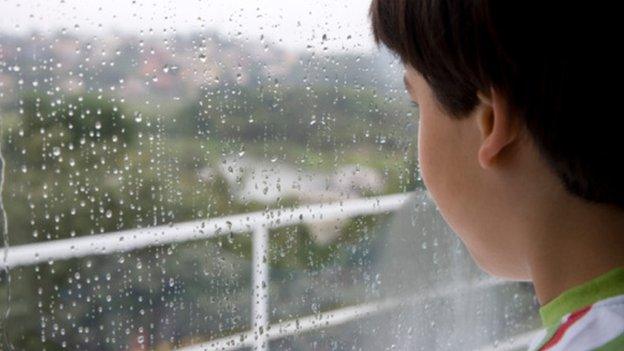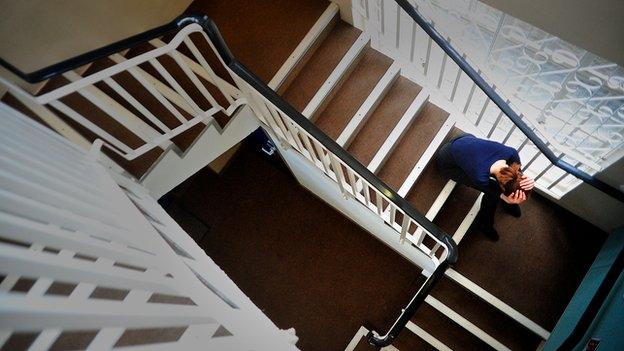Mental health services 'a car crash'
- Published

Prof Sue Bailey said politicians from all parties should visit mental health facilities
Mental health services in England are "a car crash" and the health secretary is not taking the problems seriously, according to the outgoing president of the Royal College of Psychiatrists.
Prof Sue Bailey told BBC News mental health services were "in crisis".
She said Health Secretary Jeremy Hunt had a basic understanding of mental health, but had not made it a priority.
Mr Hunt rejected this, saying he had made it a priority and that he visited the front line of the NHS most weeks.
The government say they are improving mental health services and point to more £450m being spent on psychological therapies and to pilot projects they're funding to provide street triage, ensuring a psychiatric nurse accompanies officers to incidents where police believe people need mental health support.
Strain
Mental health services are struggling to cope with rising demand at a time of shrinking resources.
Clinicians say the health effects of the recession and major welfare reforms are leading to more people accessing services.
However, patients are having to cope with a , external, forcing them to travel huge distances to access care.
Investigations by BBC News and online journal Community Care, external have also highlighted funding cuts to mental health trusts and children's mental health services.
'Real pressures'
"It's a car crash," said Prof Bailey.
"The system is in crisis and we need people to listen.
"The sums of money that could make a difference are not huge but they could make a large difference."
Prof Bailey, who steps down as president of the Royal College of Psychiatrists later this week following three years in the role, strongly attacked the health secretary for failing to engage.
Asked whether Mr Hunt takes mental health seriously, she replied, "He has a basic understanding of it but whether he takes it seriously, the proof of which would be making it a priority, then sadly not."
Mr Hunt, who became health secretary in September 2012, has regularly visited acute hospitals since being appointed.
He told BBC Radio 4's Today programme that he agreed with Prof Bailey that there were "some real pressures" in mental health delivery.

A spokesman for Jeremy Hunt said he had helped bring "parity of esteem" for mental health
But he said: "We are the government that has put in law that we have to treat mental health and physical health on the same basis."
Mr Hunt added that he was "proud" to be the "first health secretary who goes out into the front line of the NHS most weeks, who doesn't just visit trusts but actually takes part".
But in the 21 months he has been in charge, he has visited mental health trusts on a handful of occasions, according to figures obtained by BBC News following a Freedom of Information Act request.
His predecessor, Andrew Lansley, also visited mental health trusts a handful of times during his two years in the role.
Prof Bailey said: "When he [Mr Hunt] came to dinner with us, he was given a great number of offers to go and see mental health services, child services, services for the elderly, innovative projects and it would be good, especially as we go up to April 2015, to see each and every politician from the parties go out and visit mental health services."
Fixed fees
Prof Bailey, a consultant child and adolescent forensic psychiatrist in Manchester, will be replaced by Sir Simon Wessely as president of the Royal College.
She says the government's reforms of the NHS have worked against mental health services given the way that psychiatric services are funded.
Mental health services mainly have block contracts and are paid a fixed fee for a service rather than payment by results. So as demand increases, they do not get more money as patient numbers rise.
Prof Bailey has welcomed the legal commitment the government introduced to have parity of esteem between physical and mental health - ie the legal requirement that mental and physical health are treated equally - but asked: "Have we got parity in practice? I suspect not."
She will now move on to new roles, chairing various children's charities and working with Health Education England.
She said she would continue to promote mental health services, but in a broader context.
"One way to make societies healthier, including mentally healthier, is to invest in the health and education of women because women play this vital role in the rearing of the next generation," she said.
- Published20 June 2014

- Published18 June 2014
